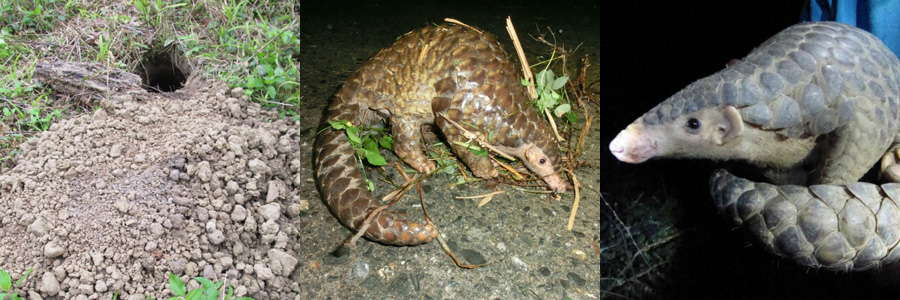
From being consumed to near extinction to being protected - The road to conservation for Taiwan pangolins
Article: Sun Ching-Min (ecologist studying wild pangolins in Taiwan)
With their scaly skin, they move through the forest to feast on ants during the night, and dwell in caves during the day. They are pangolins, a mysterious and little known mammal.
Pangolins, also known as scaly anteaters, are covered with large scales. When they move through the grass they resemble carp swimming graciously in the water. These scales are the pangolin’s natural defenses against attacks. When the less-than-agile pangolins are threatened, they curl their bodies into a ball and use their scales as passive defense.
Ironically, the scales used by pangolins for defense have become medicinal ingredients in the eyes of humans. The Chinese Pharmacopoeia stated that pangolin scales are capable of revitalizing the blood, healing bruises, and improving lactation. The scales are a precious medicinal ingredient for women after labor and is preferred by people who believe in the effects of traditional medicines. In the past 20 years, over two million pangolins have been hunted in the world. The pangolins were smuggled to China and other cities with a Chinese population. The driving forces behind these illegal actions are the medicinal value of pangolin scales and the significant black market opportunities.
All eght types of pangolin in the world are facing dangers to their survival, both big and small. Taiwan is the home of Chinese pangolins and is also one of the few sanctuaries for pangolins in the world. Around 40 to 50 years ago, pangolins in Taiwan faced the dangers of mass poaching. As the quality of life for the Taiwanese population improved and wildlife conservation laws were implemented, the culture and tradition of eating or using wildlife began to disappear.
Currently, caves created by pangolins can be seen in mountains around Taiwan. These caves were made by pangolins during their search for ants or termites. A pangolin can consume up to 30 million ants and termites in a year, contributing greatly to the maintenance of stability in the forest ecosystems. The places where pangolins reside are also cared for by the role pangolins play in the ecosystem.
Taiwan is a paradise for pangolins. Although this statement is still just a goal, this is not an unattainable dream. We hope to invest more efforts and resources into the conservation and study of pangolins to dispel the mystery surrounding these creatures and allow people to live in harmony with the pangolins.




 中
中